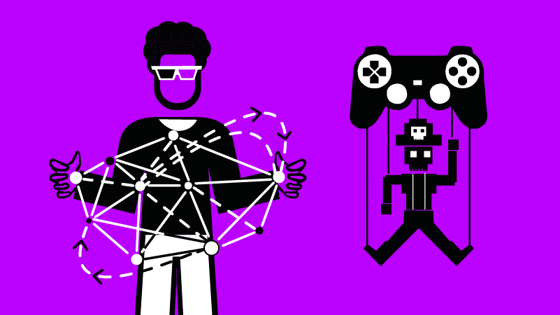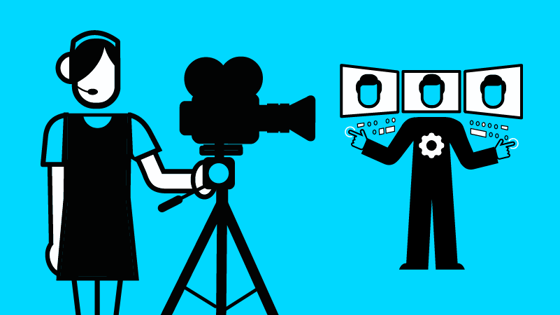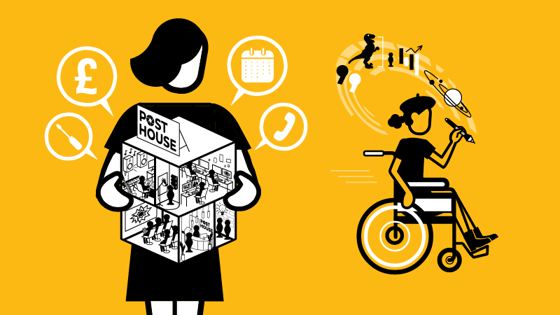Broadcast engineering
Design engineer
Also known as: Engineering specialist, Product engineer

What does a design engineer do?
Design engineers plan out broadcast projects – whether that’s a new edit suite in a post-production studio, a communications system for a television studio or a temporary playout centre at the Olympics.
They know all about the latest technology so they can make sure the projects they work on are bang up to date. They work with a technical team who advise on what they want the equipment to do and a maintenance team who set up and look after it.
Design engineers need to work to a budget. They must know the costs of different equipment and be able to weigh that up with how effective it is – for example, whether it’s worth investing in a high-end but more expensive microphone or camera compared to a cheaper model. They often plan the design around a list of materials that are needed, but sometimes they work to a budget given to them by their client.
They are responsible for working out exactly how a project will be put together: how many cables are needed, how many editing suites to install and how best to maintain and manage all the equipment in the broadcast or production centre.
Most of the design engineers’ work is in the planning, so they don’t usually work on the site where the project is being built. However, they might need to visit to solve any problems that the building team come across.
Watch and read
- Building a broadcast streaming studio in my classroom
- How we built it: Timeline’s Ealing broadcast centre
What is a design engineer good at?
- Design: know how to put together different types of technology to come up with the best design to suit the needs of studio centre or post-production house
- Being up to date: have expert knowledge of current technical systems and the best ways of putting them together
- Planning: have experience with planning projects and making cost and time estimates
- Attention to detail: pay close attention to all the different elements of a design
- Problem solving: identify where you might come up against issues with the design and how to work around these.
Who does a design engineer work with?
Design engineers work closely with the project director, who oversees how the broadcast projects are built. Design engineers also work with the senior technical project managers to make sure everything can be planned and built on time.
How do I become a design engineer?
You can gain experience by taking vocational qualifications or getting a degree in a relevant subject such as electrical or broadcast engineering. You can also take an apprenticeship and learn on the job through work experience.
At school or college
If you’re interested in a career in broadcast engineering, A-levels in maths, computer science and physics would be good to get under your belt. You could combine these with subjects from the arts and humanities, as that could give you more options later in your career if you want to work more closely with programme makers. Languages are also handy if you need to travel or want to work with foreign broadcasters – studying A-level French might be your ticket to designing a new post-production house in Nice!
The following Level 3 vocational qualifications are also relevant to this role:
- BTEC in Engineering with Engineering Maths
- Cambridge Technical Extended Certificate in Engineering
- BTEC National Foundation Diploma in Engineering
- C&G Technical Certificate in Engineering
- EAL Technical Diploma/Extended Diploma in Engineering Technologies
- BTEC Diploma/Extended Diploma in Electrical and Electronic Engineering
- City & Guilds Advanced Technical Diploma in Electrical Installation
- EAL Diploma/Advanced Diploma in Electrical Installation
Selected schools and colleges have also started offering T-levels – a qualification equivalent to three A-levels that is designed to help you get into the industry of your choice. Study is 80% classroom- and 20% work placement-based.
The following T-levels would help to kick-start your career in broadcast engineering:
- Digital Production, Design and Development
- Digital Support Services
- Digital Business Services
- Design and Development for Engineering and Manufacturing
- Maintenance, Installation and Repair for Engineering and Manufacturing
- Engineering, Manufacturing, Processing and Control
Apprenticeships
Apprenticeships are jobs with training. Search for apprenticeships in broadcast engineering with broadcasters like BBC and Sky. Go to What’s an apprenticeship? to find out more and Where can I find an apprenticeship? to find apprenticeships in your region. Alternatively, you can approach companies directly. Take a look at our list of apprenticeships to find the schemes of the main broadcasters.
The BBC has a three-year broadcast and media systems degree apprenticeship that offers a mix of practical experience and university study in all areas of media systems engineering. You may also be interested in the level 3 apprenticeship for broadcast and media systems technical operator.
Volunteer
Get involved with events in your local community, whether that’s running the sound for your school talent show, managing the special effects for an amateur dramatics society or helping out at a volunteer-run radio station.
Contact theatre productions or local music venues that can get you behind the scenes of a production environment. Anything that gives you experience in dealing with equipment in a live environment will be helpful. Voluntary experience is great for your CV, because it shows you’re enthusiastic, have technical ability and experience and you work well as part of a team.
Get a degree
A degree in a maths or science subject would stand you in good stead for entering the world of broadcast engineering. You could also look at electronic engineering, software design or computing. Go to ScreenSkills Select to find university and college courses accredited by ScreenSkills.
Look outside the industry
If you can’t or don’t want to get into broadcast engineering straight away, industries that require similar skills include telecoms, live events and radio. These would enable you to strengthen your technical abilities and get experience with technical equipment.
Get work experience
Write to local production companies and ask if they offer technical assistant roles. Keep an eye out for work experience opportunities at the BBC, ITV, Channel 4, Sky and the PACT Indie Diversity Training Scheme.
Alternatively, try approaching a rental equipment company that supplies productions with the gear they need. This will enable you to get your hands on equipment, learn more about it and get to know people who work in TV.
Take a short course
If you are over 18, make a ScreenSkills account and check out ScreenSkills’ Training and opportunities page and click on Training to see what courses are available, whether they are in person or online. The training doesn’t have to be linked directly to broadcast engineering; for example, a short course on developing resilience would help you understand how to thrive in challenging circumstances.
Network
Get to know people in the film and TV industry by attending events such as ScreenSkills’ Open Doors. Go to Training and opportunities and use the events filter to find out what’s on. Meet professionals and ask them questions about their work, while demonstrating interest in and knowledge of the industry. Offer to provide them with your professional contact details and try to stay in touch with them. Go to Network well to learn how to do this.
Network online
Create a LinkedIn profile. See if there are Facebook pages or other social media groups for people making film and TV in your area. Create a ScreenSkills profile. There are a lot of crewing agencies that will charge you to be on their books. Sign up to the free ones initially. Wales Screen, Northern Ireland Screen and Filming in England offer free crew databases and opportunities to network in person. Find a film office near you and get connected. If you do sign up to paid sites, make sure they specialise in the areas in which you’re interested.
Search for jobs
Search for jobs on the broadcasters’ websites as well as on LinkedIn and other job-hunting websites. Make use of the ScreenSkills jobs board. You can also send a short speculative letter with your CV to technical managers or vision supervisors.
You might also be interested in..
Have a look at roles like R&D engineer in the research department or trainee technical project manager in the installation team.
Further resources
- Why the Industry needs more Broadcast Engineers | NFTS
- BritishFilm Commission list of UK studios
- Engineering Council
- Rise: Women in Broadcast
- The Institution of Engineering and Technology
- The International Trade Association for the Broadcast & Media Industry
- Society of Media Professionals, Technologists and Engineers
- International Broadcasting Convention
- The Media Production & Technology Show
- E&T (Engineering & Technology) magazine
- NEP UK and Ireland
- Broadcast – Tech Talks
- Broadcast Buddy TV YouTube channel
- BBC Research and Development
- BBC Academy
- ITV Entry Careers
- Sky early careers
- 4Skills (Channel 4)
- Bectu (the media and entertainment union)
- Bectu Ratecards







